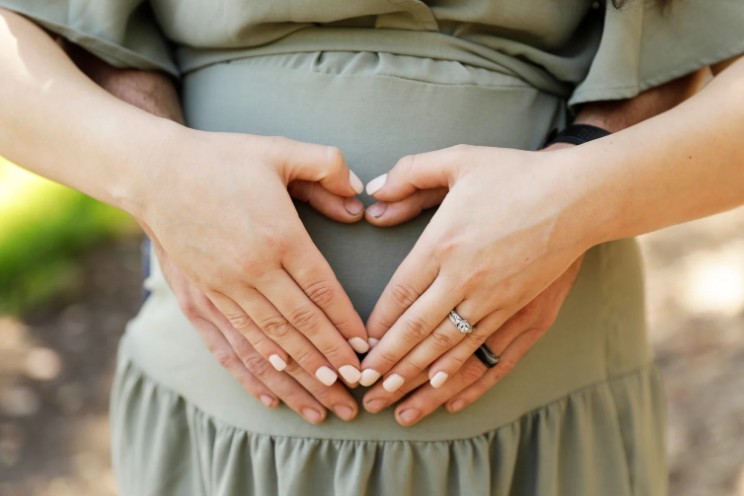If you’re pregnant or on maternity leave, it’s completely normal to wonder about your benefit entitlements.
One of the most common questions people ask is: can you claim universal credit on maternity leave? It’s a fair question, especially with the rising cost of living and the need for financial support during your time off work.
Let’s break down what these benefits are, how they interact, and what you can actually expect if you’re applying for both.
What is Maternity Allowance?
Maternity Allowance is a benefit provided by the UK government to support pregnant individuals who don’t qualify for Statutory Maternity Pay (SMP).
This might be the case if you’re self-employed, recently changed jobs, or haven’t worked enough to qualify for SMP.

Who can claim Maternity Allowance?
You may be eligible for Maternity Allowance if:
- You’re employed but not eligible for SMP
- You’re self-employed and paying Class 2 National Insurance
- You’ve recently stopped working
How much is Maternity Allowance?
You could get:
- £172.48 per week (or 90% of your average weekly earnings if that’s less)
- For up to 39 weeks
How is Maternity Allowance paid?
It’s usually paid every 2 or 4 weeks directly into your bank account. It does not count as taxable income, but it can affect other benefits—especially Universal Credit.
What is Universal Credit?
Universal Credit (UC) is a monthly payment to help with your living costs. It’s available to people who are on low income or out of work and replaces several older benefits.

Who is eligible for Universal Credit?
To qualify, you usually must:
- Be on a low income or out of work
- Be 18 year or over (some exceptions apply)
- Live in the UK
- Have less than £16,000 in savings
What does it include?
Your Universal Credit may include:
- A standard allowance
- Additional amounts for children, disabilities, or housing
- Childcare support (up to 85% of costs if you’re working)
How do other benefits affect UC?
If you receive other benefits like Maternity Allowance, your UC may be reduced—this is where things get tricky.
Can You Claim Universal Credit on Maternity Leave?
Absolutely. In fact, many people apply for Universal Credit maternity leave support even before their Maternity Allowance starts.

You might qualify for UC if:
- You’re on a low income or stopped working
- You’re paying rent and need help with housing costs
- You have other children or dependents
Even if the Maternity Allowance reduces your UC temporarily, you could still get help with:
- Housing costs
- Childcare
- Council Tax Reduction (via your local council)
Can You Get Universal Credit and Maternity Allowance at the Same Time?
Yes—but with a catch.
If you’re receiving Maternity Allowance, the Department for Work and Pensions (DWP) will treat it as income.
That means your Universal Credit will be reduced pound for pound by the amount you receive in Maternity Allowance.
How does this work in practice?
If you receive £172.48/week in Maternity Allowance, that’s roughly £689.92 per month. Your Universal Credit will be reduced by this exact amount.
For some people, this means your UC may drop to zero during the time you receive Maternity Allowance.
Not Returning to Work After Maternity Leave? What Happens to Universal Credit?
If you’ve decided not returning to work after maternity leave, Universal Credit becomes even more important.
Here’s what to know?
- Once Maternity Allowance ends, your UC will be recalculated
- You could receive higher payments again, especially if you’re caring for a child and not working
- If you’re a single parent, you may be eligible for work allowance and additional elements
Make sure to update your circumstances with UC as soon as anything changes.
What are the Examples of How These Benefits Interact?
Let’s break it down with a comparison table:
| Scenario | Maternity Allowance | Universal Credit | Total Benefit |
| Employed but not eligible for SMP | £689.92/month | £0 (fully deducted) | £689.92 |
| Low-income, high rent | £689.92 | £200 (housing element may still apply) | £889.92 |
| Not working, 2 children | £689.92 | £300 (child element may remain) | £989.92 |
What Should You Do If You’re Claiming Both?
Here’s how to handle both benefits smoothly:
- Report Maternity Allowance to Universal Credit
- Use a benefits calculator like Turn2Us or Entitled To to estimate your income
- Keep an eye on your UC statements—check for accurate deductions
- Notify DWP of changes: birth, job return, relationship status, etc.

Can You Get Both? – Universal Credit Maternity Leave
- You can apply for both
- Maternity Allowance reduces Universal Credit
- You might still get UC support for housing or children
- When MA ends, your UC may go back up
- Always report changes on time to avoid overpayments
Conclusion
So, can you claim universal credit on maternity leave and will you get at the same time? Yes—but the Maternity Allowance will likely reduce or eliminate your UC temporarily.
That said, you might still get help with housing or childcare, and once your MA ends, your UC could increase again.
Make sure to:
- Use a benefits calculator
- Update your details
- Understand your entitlements
Every family’s situation is different—so take the time to explore your options and make informed decisions that support you and your baby.
What are the FAQs On can you claim universal credit on maternity leave?
1. Can I get Universal Credit on maternity leave?
Yes, especially if your household has low income or high rent.
2. What happens if I don’t return to work?
Your UC could go up again once Maternity Allowance ends, especially if you stay at home with your baby.
3. Does Maternity Allowance count as income for UC?
Yes—it reduces your Universal Credit pound for pound.

Leave a Reply